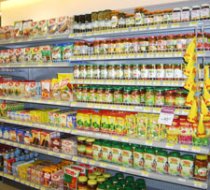The rain gods, it appears, will play a role in the decision of fast moving consumer goods companies to either raise or maintain prices of their products in the second quarter of the financial year.
 The monsoon plays a critical role in consumption and demand. If the season is good, as many say it will be this year, then it builds a case for price hikes, say analysts. This is because consumer spending will increase on account of a decrease in food inflation and increase in demand.
The monsoon plays a critical role in consumption and demand. If the season is good, as many say it will be this year, then it builds a case for price hikes, say analysts. This is because consumer spending will increase on account of a decrease in food inflation and increase in demand.
On the other hand, if the monsoon is not satisfactory, as in 2009, then companies would worry about sustaining volumes in an environment where consumer spend is lower, they say.
The monthly household expenditure on food alone is typically around 50 per cent, say analysts. "If inflationary pressures on the food front increase, it is bound to impact spends on food as well as allied FMCG products," explains Jaibir Singh Sethi, analyst, consumer & retail, Noble Group.
Last year, barring food & beverage majors such as Nestle, GlaxoSmithKline and Britannia, which had no option but to take price hikes in an inflationary environment, most others in the FMCG category opted to go slow on price hikes. The fear of losing market share, as well as seeing volumes erode, was too great a concern for most to allow price hikes. Says Anand Shah, senior analyst, Angel Securities, "Hindustan Unilever, Procter & Gamble and Marico actually cut prices last year, while Godrej Consumer Products held on to prices."
Focus on volume remains
The strategy paid off, with volume growth on an average for most FMCG majors, barring HUL, being in the region of 8-10 per cent last year. According to Shah, the focus on volume growth will continue in the current year as well, despite possible price hikes in the second quarter of this year. "Competitive pressures have increased in general," he says. "Companies will be cautious when taking hikes."
Agrees Sunil Duggal, chief executive officer, Dabur India: "Price hikes are taken to protect margins. If there are no inflationary pressures on the input side, why should we take price hikes?"
In the past few months, the price of sugar and wheat came down by about 30 per cent and 15 per cent, respectively. Crude oil has softened by 19 per cent in the past month, while copra prices have been benign. "Only milk and palm oil prices remain firm," says Shah. Milk, for instance, has increased by 35 per cent in Maharashtra alone, says Vinita Bali, managing director, Britannia Industries.
"I am hoping the whole food and food pricing scenario will stabilise shortly. Till then, we are keeping our fingers crossed," she adds.












 © 2025
© 2025